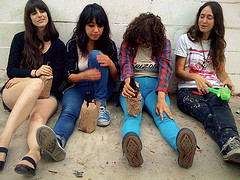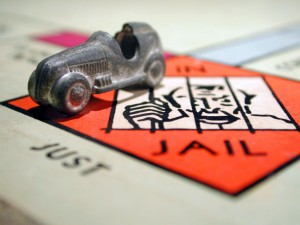Alcohol Abuse in Teenagers

This article was written by New York DUI attorney Arkady Bukh from the Bukh Law Firm, 14 Wall St, New York NY 10005, (212) 729-1632.
A small library could be filled with the information about teenagers in the US who consume alcohol. Alcohol is the most frequently used drug by teenagers with about half of junior high and senior high school students drinking alcohol at least once a month. Typically, 14 percent of teens have been drunk at least once in the past year and 8 percent of teenagers who drink claim to drink more than five alcoholic drinks in a row.
Minors are typically less experienced with alcohol and they tend to take excessive risks while exercising little judgment. When teenagers get behind the wheel of a car when drinking, they are putting themselves and others in serious danger. The deadly, morbid statistics are the reason that the penalties for being a teenage drunk driver are universally severe throughout the nation.
Zero Tolerance
The elevated intensity of teen injuries and deaths resulting from drunk driving was the reason, in 1982, that zero-tolerance laws were introduced. Since then, with the gravity of teens drinking and driving, each state has zero-tolerance laws on the books. There are two parts to every state’s zero-tolerance law. The first is illegal per se laws. The ‘per se’ suffix means ‘in and of itself.’ If a person is a minor, that is, under 21, and is caught driving with even a minimal amount of alcohol in the bloodstream, they will be immediately arrested for driving under the influence.
Anything over a limit of 0.00 percent, in some states, will get the minor a DUI. Some states place their baseline at 0.02. The typical adult level is 0.08.
The other part of the law is the administrative per se laws. This component says that if a minor is behind the wheel with any amount of alcohol in the blood, their license will be suspended or even revoked, without adjudication, by the Department of Motor Vehicles.
The penalties don’t stop there. In addition, the minor caught drinking and driving is subject to the sanctions the court wants to impose. While some have criticized the zero-tolerance laws as being too harsh in the case where a minor is driving home a drunk friend, the laws have shown repeatedly to be an efficient method of deterrent for minors.
Consequences
The punishment for teen DUIs vary from state to state, with the teenage first-offender generally getting a more severe punishment than is given to an adult for their first DUI infraction. Minors are faced not just with penalties for driving under the influence, but also underage drinking charges as well.
Collateral charges may also accompany the DUI offense. Possession of alcohol, possession of a fake ID card, asking an adult for alcohol and giving alcohol to other minors are all offenses that can be brought to bear on the minor who drinks and drives. A minor receiving a DUI will find that the charge will remain on their driving record as an adult. Thousands of dollars in fines, as well as community service, may also be imposed by the courts.
Jail Time
 In many states, a teen’s first DUI charge can also bring jail time of up to one year. Minors facing their 2nd or subsequent DUI charge, or are involved in an accident while drinking, will always receive a jail sentence ranging from a few days to several years.
In many states, a teen’s first DUI charge can also bring jail time of up to one year. Minors facing their 2nd or subsequent DUI charge, or are involved in an accident while drinking, will always receive a jail sentence ranging from a few days to several years.
Even after a teen, or minor, has had their license reinstated, they can be sure the watchful eye of the courts will be observing. Courts are increasingly making use of ignition interlock devices on the teenager’s car, or the car which the teen drives most often. Some courts have chosen to impound the car instead of an interlock device. Hardship, or conditional licenses, usually are not as available for teens convicted of DUIs.
The high price that teens pay for violating drinking laws just aren’t worth the expense, potential time in jail and, possibly worse, consequences.



